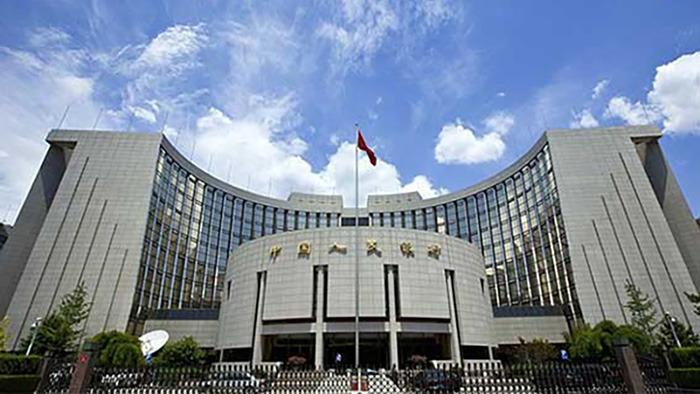 This undated file photo shows the headquarters of the People's Bank of China, China's central bank, in Beijing, China. (PHOTO / XINHUA)
This undated file photo shows the headquarters of the People's Bank of China, China's central bank, in Beijing, China. (PHOTO / XINHUA)
The People's Bank of China, the central bank, has been rated the "greenest" among all the peers in G20 countries, thanks to its proactive actions, such as issuing low-interest rate loans to steer the market in a green direction, a leading non-profit organization said.
China led the "green central banking ranking" of G20 countries, based on green monetary and financial policies, according to a report issued by Positive Money, a London-based campaign group, on Wednesday.
The ranking is based on the intent showed by the G20 central banks to combat climate change."China's relative success in this score card compared to its G20 counterparts is likely linked to its monetary and prudential authorities' close coordination with other government departments," the report said.
For example, in 2016, Chinese financial regulators issued the world's first national green finance policy-the "Guidelines for Establishing the Green Financial System"-in collaboration with four other government institutions, it said.
The PBOC framed its first green initiative in 1995, when it issued a notice on implementing credit policies and enhancing environmental protection, which provided guidance for banks on "how to better include environmental variables in credit decisions".
Shan Hui, chief economist in China with Goldman Sachs, told China Daily that potential ways for the PBOC to support green finance in the future include window guidance of more bank lending toward green sectors, the macro-prudential assessment framework tilted toward green financing and relending programs specifically targeting green financing
ALSO READ: Continuity, stability to be focus for PBOC
In 2018, the PBOC started offering a favorable interest rate on the required reserves for banks that perform well in an assessment of green financing activities. It has also accepted green bonds as collateral in the medium term lending facility, and recently excluded clean coal projects from its green bond standards, according to the report.
David Barmes, an economist with Positive Money and one of the authors of the report, said the "most urgent priority" for the PBOC and China's financial regulators is to show leadership in working with other departments to improve the green finance standards.
Finance ministers and central bank governors of G20 countries will discuss among other things, the ways to deal with climate change issues, during their two-day deliberations on Wednesday and Thursday.
During the first quarterly meeting of the PBOC monetary policy committee, members agreed on conducting targeted financial measures to support green finance-related entities, in addition to the previous commitment on supporting small and medium enterprises and manufacturers.
READ MORE: PBOC: China to advance green finance development
At a separate meeting last week, the central bank also urged commercial banks to step up support for carbon emissions reduction financing, according to statements issued on the central bank website.
"The central bank is planning to include climate change-related factors in the monetary policy framework, and would also consider them as factors in stress tests for financial institutions, said PBOC Governor Yi Gang at a forum last month.
Shan Hui, chief economist in China with Goldman Sachs, told China Daily that potential ways for the PBOC to support green finance in the future include window guidance of more bank lending toward green sectors, the macro-prudential assessment framework tilted toward green financing and relending programs specifically targeting green financing.
"The investment requirements for carbon neutrality by 2060 is huge," Shan said, "and the investment profile may be hump-shaped. As Governor Yi mentioned recently, government might only shoulder a fraction of it."


